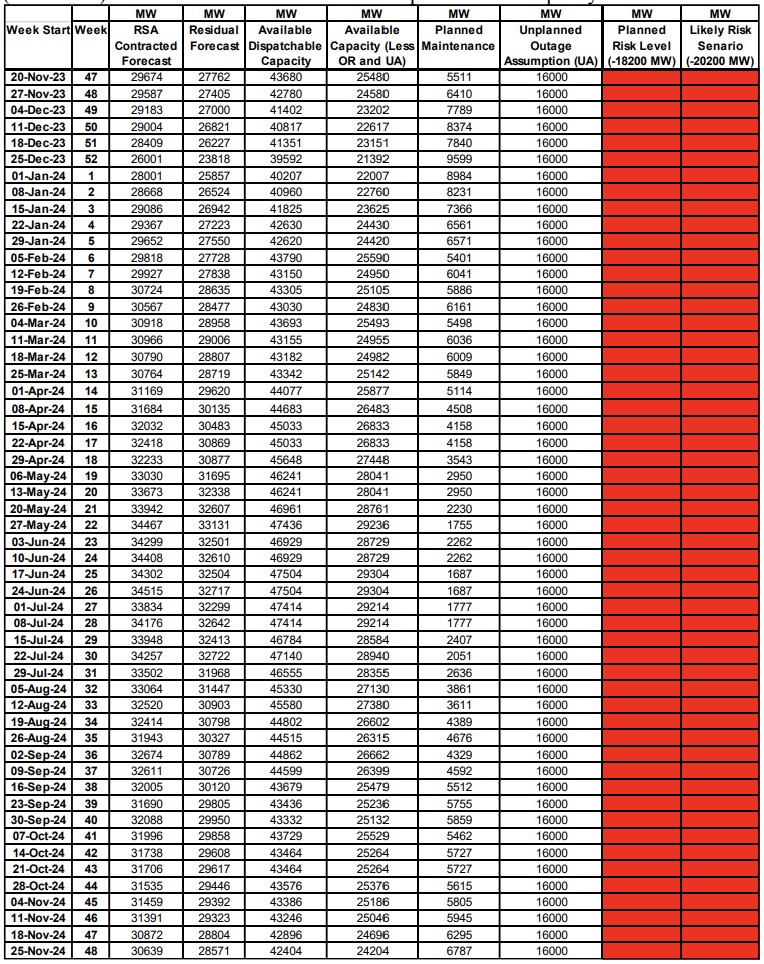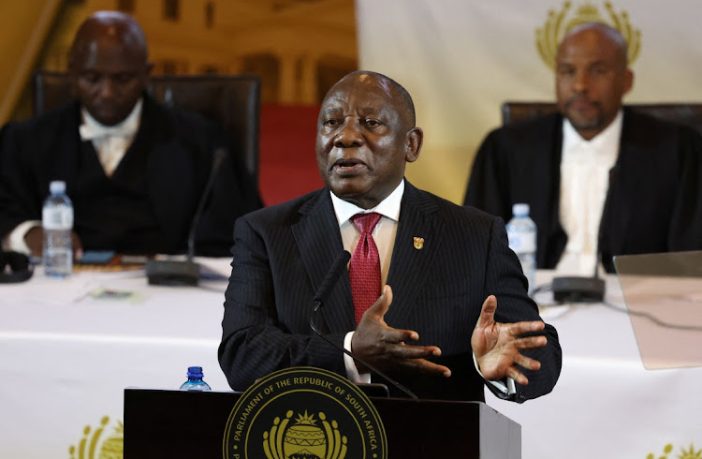- South Africa’s president, Cyril Ramaphosa, delivered his State of the Nation Speech last night in what is his 5th year as president.
- The South African government has functioned as a one-party dominant democracy under the African National Congress (ANC) which has enabled political elites to accrue tremendous power, wealth, and influence through corruption, patronage, and clientelism.
- Under their leadership, the country’s state-owned energy utility, Eskom, to spiral into decay and unable to meet the energy demands of the country.
- South African’s face daily blackouts of up to 10 hours.
- Since he took office, the country’s once globally revered energy procurement programme, has failed to procure enough and much needed new generation capacity through gross incompetence. Read more
- Despite the massive energy crisis caused by his government, last night Ramaphosa found it in himself to trumpet his governments achievements in the sector.
This is what he said:
We are on track to resolve the most important constraints on economic growth by stabilising our energy supply.
We set out a clear plan to end load shedding, which we have been implementing with a single-minded focus through the National Energy Crisis Committee.
We have delivered on our commitments to bring substantial new power through private investment on to the grid, which is already helping to reduce load shedding.
Last year, we implemented a major debt relief package which will enable Eskom to make investments in maintenance and transmission infrastructure and ensure its sustainability going forward.
Since we revived our renewable energy programme five years ago, we have connected more than 2,500MW of solar and wind power to the grid with three times this amount already in procurement or construction.
Through tax incentives and financial support, we have more than doubled the amount of rooftop solar capacity installed across the country in just the past year.
We have implemented sweeping regulatory reforms to enable private investment in electricity generation, with more than 120 new private energy projects now in development.
These are phenomenal developments that are driving the restructuring of our electricity sector in line with what many other economies have done to increase competitiveness and bring down prices.
Through all of these actions, we are confident that the worst is behind us and the end of load shedding is finally within reach.
But we are not stopping there.
To ensure that we never face a similar crisis ever again, we are reforming our energy system to make it more competitive, sustainable and reliable into the future.
We are going to build more than 14,000km of new transmission lines to accommodate renewable energy over the coming years.
To fast-track this process, we will enable private investment in transmission infrastructure through a variety of innovative investment models.
Last year, we tabled the Electricity Regulation Amendment Bill to support the restructuring of Eskom and establish a competitive electricity market.
As we undertake these reforms, we are positioning our economy for future growth in a world shaped by climate change and a revolution in green technologies.
In the last three years, our country has seen an increase in extreme weather events, often with disastrous consequences.
This is why we are implementing a just energy transition, not only to reduce carbon emissions and fight climate change, but to create growth and jobs for our own people.
We will undertake this transition at a pace, scale and cost that our country can afford and in a manner that ensures energy security.
With our abundance of solar, wind and mineral resources, we are going to create thousands of jobs in renewable energy, green hydrogen, green steel, electric vehicles and other green products.
The Northern Cape, with its optimal solar conditions, has already attracted billions of rands in investment.
We are going to set up a Special Economic Zone in the Boegoebaai port to drive investment in green energy. There is a great deal of interest from the private sector to participate in the boom that will generate green hydrogen energy projects.
We have decided to support electric vehicle manufacturing in South Africa to grow our automotive sector, which provides good jobs to thousands of workers.
We have decided to give special focus to regions like Mpumalanga to enable the creation of new industries, new economic opportunities and sustainable jobs.
And in the past year, we have increased the financing pledges for our Just Energy Transition Investment Plan from around R170 billion to almost R240 billion.
To address the persistent effects of global warming, which manifest themselves through persistent floods, fires and droughts, we have decided to establish a Climate Change Response Fund.
This will bring together all spheres of government and the private sector in a collaborative effort to build our resilience and respond to the impacts of climate change.’
Yesterday Eskom announced that due to the need to replenish the pumped storage dams, which are required to meet the morning and evening peak loads, and a generating unit that was taken offline for repairs over the past 24 hours, Stage 3 load-shedding (blackouts) will be implemented until further notice.
Unplanned outages are at 15 958MW of generating capacity, while the capacity out of service for planned maintenance is at 6 771MW. This means that more than half of Eskom’s coal generation capacity of around 38000MW is out of service.
Eskom’s energy availability factor (EAF) is in a state of year on year decline. The EAF for the full 2023 calendar year dropped to 54.71%, compared to 58.11% for the full 2022 calendar year. Eskom has also confirmed that load-shedding will remain an be a daily occurrence throughout 2024.

Eskom System Operator outlook for load-shedding in South Africa for the next year. Image credit: Eskom
Author: Bryan Groenendaal















